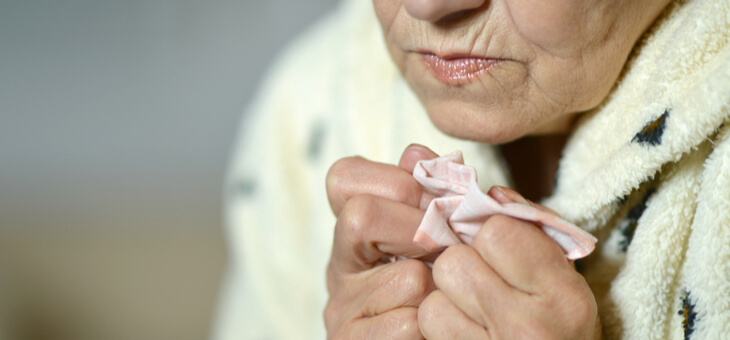It’s that time of year again and a common cold can really wear you down – especially one that won’t go away.
With all the masking up and staying home, many of us haven’t had a proper cold for a while – making it feel even worse when you do catch one.
“After spending most of the last two years in lockdown, it’s no surprise many of us are finding we’re now more susceptible to viral infections, such as the common cold,” says pharmacist Melanie King.

“The best way to avoid catching a cold is by maintaining a healthy lifestyle. Emotional stress, fatigue, poor diet, and smoking can all lower your immune system, and increase your chances of an infection.”
She says a normal cold lasts between one and two weeks, and should go away on its own with rest. There’s no cure for the common cold, but there are a few things you can do to potentially help yourself feel better.
1. Eat well

“You might have heard the phrase ‘feed a cold, starve a fever’, but this is an old wives’ tale – you should feed both!” says Ms King. “Although you may not feel up to it, eating nutritious, balanced meals will give you the energy to fight off an infection.
“It’s also important to drink plenty of fluids to replace those lost from sweating, and to make it easier for the body to get rid of mucus by keeping it runny.”
Read: The Famous Flu Fighter Soup
Immunologist and clinical researcher Dr Ross Walton agrees on the importance of a healthy, balanced diet. He recommends foods containing vitamins C, D and zinc: “Nutrients all shown to support your immune health,” he says.
2. Take your vitamins

“Vitamin D is an essential nutrient that can help keep bones and muscles healthy to support general health,” explains Ms King.
“Our bodies normally make it when we’re exposed to sunlight, however, in the winter months when we’re indoors more, it may be worth considering other sources. While it won’t stop you from getting a cold, getting enough vitamin D can help your body fight off any infections more effectively.”
GP Dr Sarah Brewer suggests also taking vitamin C supplements, as it might “improve symptoms and hasten healing”.
3. Get plenty of sleep

Good quality sleep enables your body to rest, repair and restore health. You should try to achieve a minimum of seven to eight hours a night.
Read: How to get to sleep when you have a cold
4. Lower your stress
Since stress can reduce the effectiveness of your immune system to aid your recovery, try to identify areas of your life that are causing you stress, and take time to relax.
5. Do some moderate exercise

While working out might be the last thing you want to do when you have a cold, moderate exercise, just a 20 to 30-minute walk a day, will improve your wellbeing and support your immune system.
6. See what medication might help
“Your pharmacist can recommend several non-prescription medications that can help alleviate your cold, such as decongestants, which can help with a blocked or runny nose,” says Ms King.
“You should avoid combining multiple products with ingredients such as paracetamol, and if you’re unsure, it’s always best to ask your GP or pharmacist for advice.”
7. Try pelargonium (geranium) extract

“This is the most effective natural treatment for a common cold I’ve come across, and always keep some at hand,” says Dr Brewer. “Pelargonium has antiviral and antibacterial actions, and stimulates the clearance of infected mucus.” She recommends taking it for three days, “Or the infection may return”.
Read: Most common questions pharmacists are asked
If you’re struggling with your symptoms, feel something isn’t right or your cold lasts longer than 14 days, Ms King says this may be a sign of secondary bacterial infection, and the best thing to do is contact your pharmacist or GP.
– With PA
If you enjoy our content, don’t keep it to yourself. Share our free eNews with your friends and encourage them to sign up.
Disclaimer: This article contains general information about health issues and is not advice. For health advice, consult your medical practitioner.

